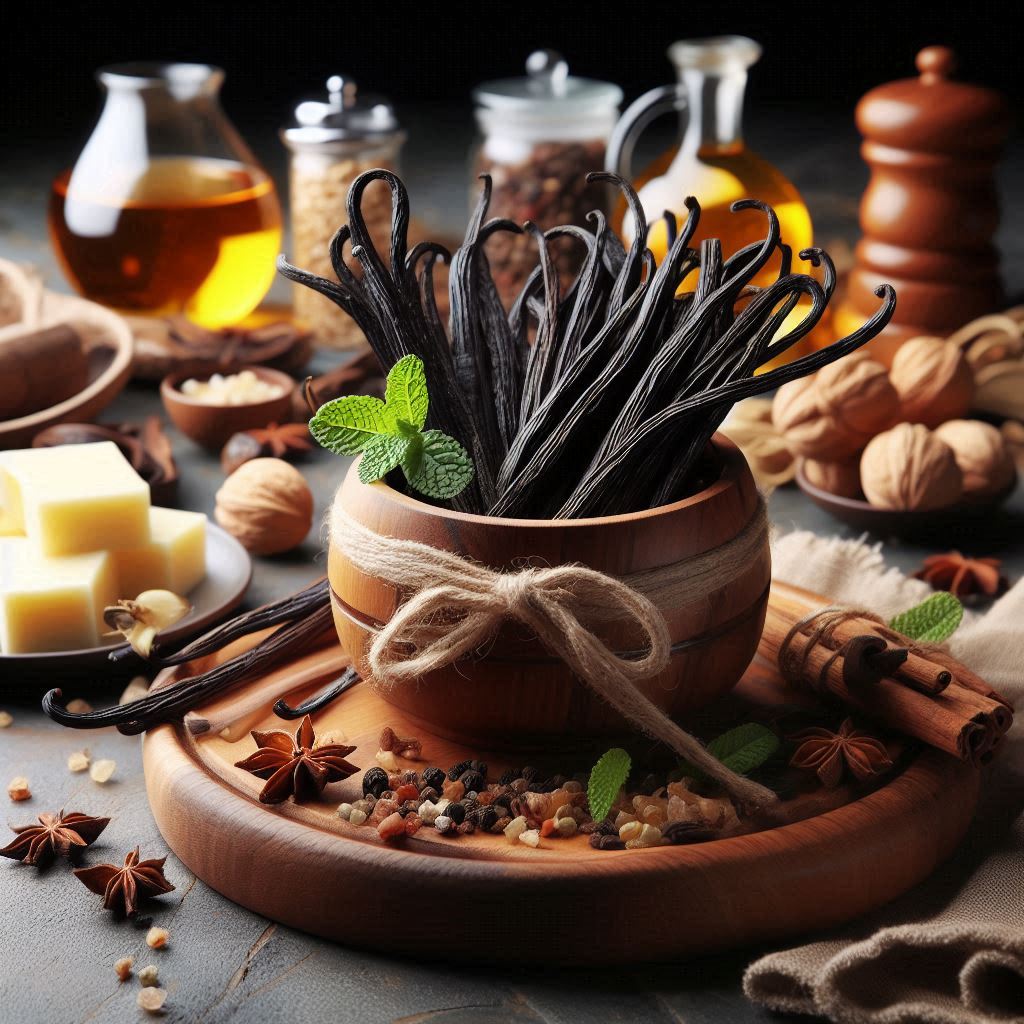Have you ever found yourself staring at a tiny, overpriced bottle of vanilla extract in the grocery store, wondering if there’s a better way? Perhaps you’re a home baker who’s tired of compromising on quality due to the high cost of vanilla beans. Or maybe you’re a professional chef looking to elevate your desserts without breaking the bank. Whatever your situation, the solution to your vanilla woes might just lie in bulk vanilla beans for sale.
The Vanilla Bean Dilemma: Quality vs. Quantity
Understanding the Vanilla Market
Vanilla is often called the world’s second most expensive spice, right after saffron. But why is it so pricey? The answer lies in its labor-intensive cultivation process and the recent supply chain disruptions.
Why Buying in Bulk Makes Sense
Buying vanilla beans in bulk can be a game-changer for both your wallet and your culinary creations. It’s like buying in bulk at a warehouse store – you get more bang for your buck, and you’re always prepared for your next baking adventure.
Types of Vanilla Beans Available in Bulk
Madagascar Bourbon Vanilla
Known for its rich, creamy flavor, Madagascar Bourbon vanilla is the go-to choice for many chefs and bakers.
Tahitian Vanilla
With its floral aroma and delicate flavor, Tahitian vanilla adds a unique twist to desserts and beverages.
Mexican Vanilla
Spicy and bold, Mexican vanilla stands up well in savory dishes as well as sweet treats.
Comparing Flavor Profiles
- Madagascar Bourbon: Rich, creamy, classic vanilla flavor
- Tahitian: Floral, fruity, with cherry-like notes
- Mexican: Bold, spicy, with woody undertones
Grading System for Bulk Vanilla Beans
Grade A vs. Grade B Beans
Grade A beans are plumper and moister, ideal for showcase desserts. Grade B beans, while less visually appealing, pack a powerful flavor punch and are perfect for extracts and infusions.
Choosing the Right Grade for Your Needs
Consider your intended use:
- Visual appeal important? Go for Grade A.
- Making extracts or infusions? Grade B is your best bet.
Benefits of Purchasing Bulk Vanilla Beans
Cost Savings
Buying in bulk can save you up to 50% compared to purchasing small quantities. That’s like getting a vanilla bean BOGO deal every time you buy!
Consistency in Flavor
With a large batch of beans from the same source, you ensure consistent flavor across all your creations.
Versatility in Usage
From extracts to infused sugars, the possibilities are endless when you have a healthy stock of vanilla beans on hand.
How to Source High-Quality Bulk Vanilla Beans
Identifying Reputable Suppliers
Look for suppliers who:
- Provide detailed information about bean origin
- Offer fair prices (if it seems too good to be true, it probably is)
- Have positive customer reviews
Red Flags to Watch Out For
Beware of:
- Unusually low prices
- Lack of information about bean origin
- Poor or non-existent customer reviews
Storage and Preservation of Bulk Vanilla Beans
Optimal Storage Conditions
Store your beans in a cool, dark place in an airtight container. Think of them as the vampires of the spice world – they don’t like light or air!
Extending Shelf Life
Properly stored, vanilla beans can last up to a year. But why stop there?
Vacuum Sealing Techniques
Vacuum sealing can extend the life of your beans even further, keeping them fresh for up to two years.
Creative Uses for Bulk Vanilla Beans
Homemade Vanilla Extract
Making your own extract is simple:
- Split 5-6 beans per cup of vodka or bourbon
- Let it sit for 2-3 months, shaking occasionally
- Enjoy your very own artisanal vanilla extract!
Vanilla-Infused Products
From vanilla sugar to vanilla salt, the possibilities are endless.
Vanilla Sugar Recipe
- Bury a split vanilla bean in 2 cups of sugar
- Let it sit for 2 weeks, shaking occasionally
- Use in coffee, baked goods, or as a fragrant topping
The Economics of Bulk Vanilla Bean Purchases
Break-Even Analysis
Let’s crunch some numbers:
- A single vanilla bean at the grocery store: $3-$5
- A bulk pack of 25 beans: $30-$50
You’re looking at savings of up to 60% when buying in bulk!
Long-Term Cost Benefits
Think of bulk vanilla beans as an investment in your culinary future. The upfront cost might be higher, but the per-bean price and versatility make it a smart long-term choice.
Sustainability in Bulk Vanilla Bean Production
Fair Trade Practices
Many bulk suppliers work directly with farmers, ensuring fair wages and sustainable practices.
Environmental Considerations
Buying in bulk often means less packaging waste. It’s a win-win for your wallet and the planet!
Conclusion: Elevating Your Culinary Game with Bulk Vanilla Beans
Investing in bulk vanilla beans is like giving yourself a golden ticket to the world of gourmet baking and cooking. Not only do you save money in the long run, but you also open up a world of culinary possibilities. From homemade extracts to vanilla-infused everything, the only limit is your imagination.
Ready to take your vanilla game to the next level? Check out our selection of high-quality bulk vanilla beans at Vanillator.
FAQs About Bulk Vanilla Beans for Sale
- Q: How many vanilla beans should I buy in bulk for home use? A: For a home baker, a pack of 10-25 beans is usually sufficient to start. This allows you to make extracts and have fresh beans on hand without risking spoilage.
- Q: Can I freeze bulk vanilla beans to make them last longer? A: While freezing isn’t recommended as it can dry out the beans, vacuum sealing and storing in a cool, dark place is the best method for long-term storage.
- Q: Are there any risks to buying vanilla beans in bulk? A: The main risk is improper storage leading to dried out or moldy beans. Always buy from reputable sources and store properly to mitigate these risks.
- Q: How can I tell if bulk vanilla beans are still good to use? A: Fresh vanilla beans should be pliable and have a strong, pleasant aroma. If they’re brittle or have an off smell, it’s time to replace them.
- Q: Can I use Grade B vanilla beans in place of Grade A in recipes? A: Absolutely! While Grade B beans might not look as pretty, they’re packed with flavor and are excellent for most recipes, especially where the beans will be infused or ground.





